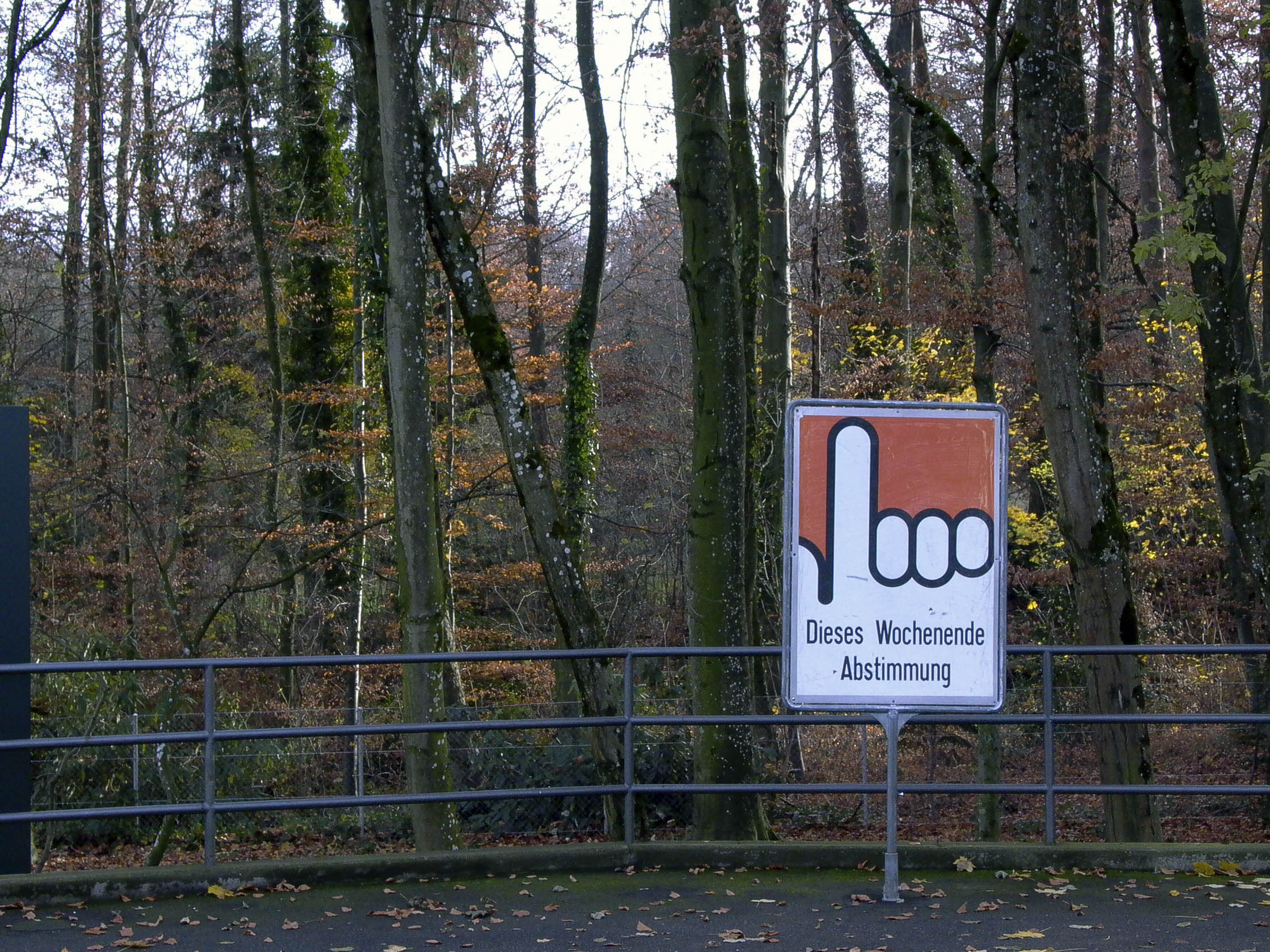Voters crack down on corporate pay packages

A proposal to rein in pay-outs to top managers and company board members has won an overwhelming majority in a nationwide ballot on Sunday. Tough negotiations are expected in parliament over the application of the initiative.
Final results show 67.9 per cent of Swiss voters coming out in favour of granting shareholders a veto right over salaries and bonuses for the top flight of listed companies.
Supporters had the upper hand in all language regions and both in urban and rural areas.
Claude Longchamp, political scientist of the leading GfS Bern research and polling institute, said the broad support was also a result of the public outrage over bonuses to bankers and other top business leaders.
“The high emotions about the pay-outs fueled the anger and added even stronger support for the initiative,” he told public radio.
Opinion polls in the run-up to March 3 showed consistently broad backing of more than 60 per cent for the fat cat initiative.
The proposal seeks greater corporate transparency and introduces hefty fines and prison sentences of up to three years for those who breach the rules.
Company board members have to seek shareholders’ approval on a yearly basis.
More haggling
Thomas Minder, the mastermind of the initiative and self-styled anti-establishment champion, said he expects some tough haggling in parliament over the application of his proposal.
“I’m glad the long campaign for the vote is over, but now the fight begins over the application of the constitutional amendment. We all know how divided parliament is over the issue,” he said.
The centre-left is likely to launch a new attempt for a tax on bonuses, a proposal rejected by parliament during the protracted discussions about the fat-cat initiative.
Supporters, including Susanne Leutenegger Oberholzer of the centre-left Social Democratic Party, said Sunday’s result was a “historic victory” over fat cat salaries in Switzerland and a “worldwide signal”.
Justice Minister Simonetta Sommaruga
Voters have given a signal to politicians to act and to the business community to show that it has understood the message.
Warning
Economiesuisse, the main lobby group of the Swiss business community which ran an expensive campaign against the initiative, conceded defeat. It called for a “practicable application” of the ballot box decision.
Director Pascal Gentinetta blamed the defeat on the high emotions, a lack of a support from the centrist and rightwing political parties and revelations about an extra CH72 million ($76 million) pay-out – later withdrawn – for the former chairman of the pharmaceutical company Novartis, Daniel Vasella.
Centrist and rightwing parties have warned the Swiss economy risks losing its competitive edge by imposing strict rules and harsh penalties. They said a counter-proposal by parliament would have been better suited to crack down on excessive manager salaries.
For her part, Justice Minister Simonetta Sommaruga said voters had expressed their dissatisfaction with excessive corporate pay packages.
“Voters have given a signal to politicians to act and to the business community to show that it has understood the message,” she told a news conference.
Sommaruga added her ministry would present an interim regulation within 12 months allowing parliament time to define the details of the necessary legislation.
It is only the 20th people’s initiative – out of the 183 proposals that have come to a nationwide vote since 1891 – to win approval of Swiss voters.
In the near future they will also have the final say on proposals by centre-left parties and trade unions to cap manager salaries by a 1:12 ratio within a company, or to introduce a minimum salary at a nationwide level.
An estimated 5.1 million citizens were eligible to take part in the vote – the first set in a series of up to four ballots this year.
Up to 152,000 citizens, including members of the Swiss expatriate community, had the option to vote online as part of an ongoing trial with e-voting.
Overall some 14% of eligible voters used the internet to cast their ballot.
Apart from the nationwide ballot, votes on a variety of issues took place in most cantons and at a local level on the same day.
Daycare facilities
Voters threw out a proposal to promote the creation of child daycare facilities, boosting the chances of young mothers in the job market and improving the work-life balance for families.
Despite a majority of voters in favour of the constitutional amendment it failed to win a majority among the 26 cantons – a rare occurrence in modern Swiss history.
The amendment was opposed by the rightwing Swiss People’s Party and part of the centre-right Radicals. They argued it added an additional financial burden for taxpayers and was an interference by the state in family matters.
Supporters, notably the Social Democrats, the Greens and the Christian Democrats, as well as the cabinet, argued the federal authorities must encourage cantons to provide more safeguards to families, answering their needs and society’s expectations.
Insufficient infrastructure – nurseries, school meals – makes it hard for women to keep their jobs, according to supporters.
Switzerland ranks behind many other countries in Europe when it comes to childcare facilities, including school meals and nurseries.
Urban sprawl
The third issue on the ballot sheet – a 15-year freeze on development areas in a bid to stop urban sprawl – passed with a clear majority of 63 per cent.
Environmentalists and left-leaning parties argued continuing building activity is damaging the countryside.
Parliament last year decided to tighten the law on land use, but opponents, led by the influential Association of Small and Medium-Sized Entreprises and backed by the People’s Party and the Radicals, gathered enough signatures to challenge the decision to a public vote.
They said they were concerned by additional levies, rezoning issues and fears that the cantons risk losing their autonomy to the federal authorities.
Fat cat initiative
67.9% yes 32.1% no
Family policies
54.3% yes 45.7% no
But a majority of the 26 cantons rejected the amendment
Zoning laws
62.9% yes 37.1% no
Turnout: 45.4%

In compliance with the JTI standards
More: SWI swissinfo.ch certified by the Journalism Trust Initiative



You can find an overview of ongoing debates with our journalists here. Please join us!
If you want to start a conversation about a topic raised in this article or want to report factual errors, email us at english@swissinfo.ch.